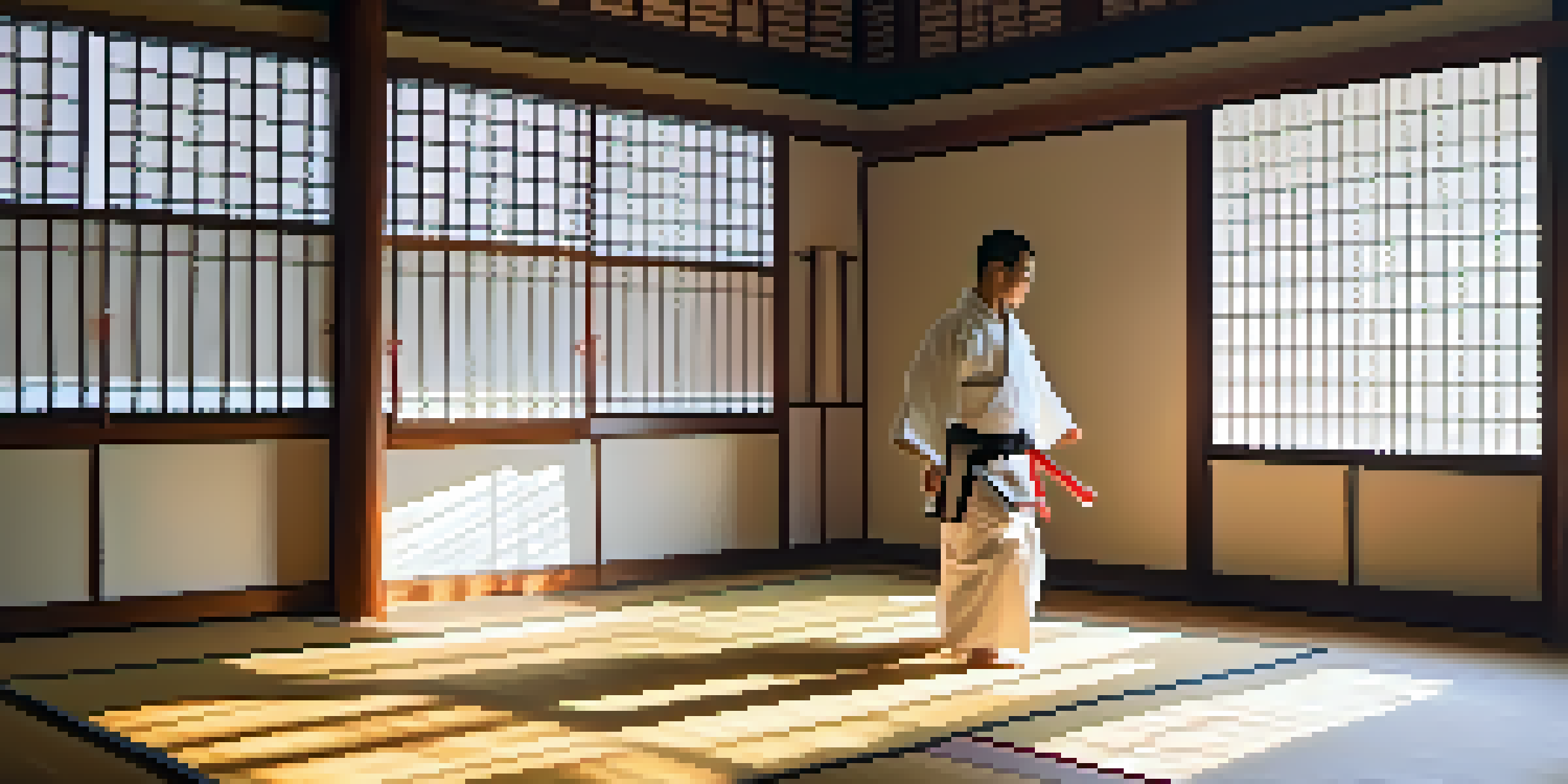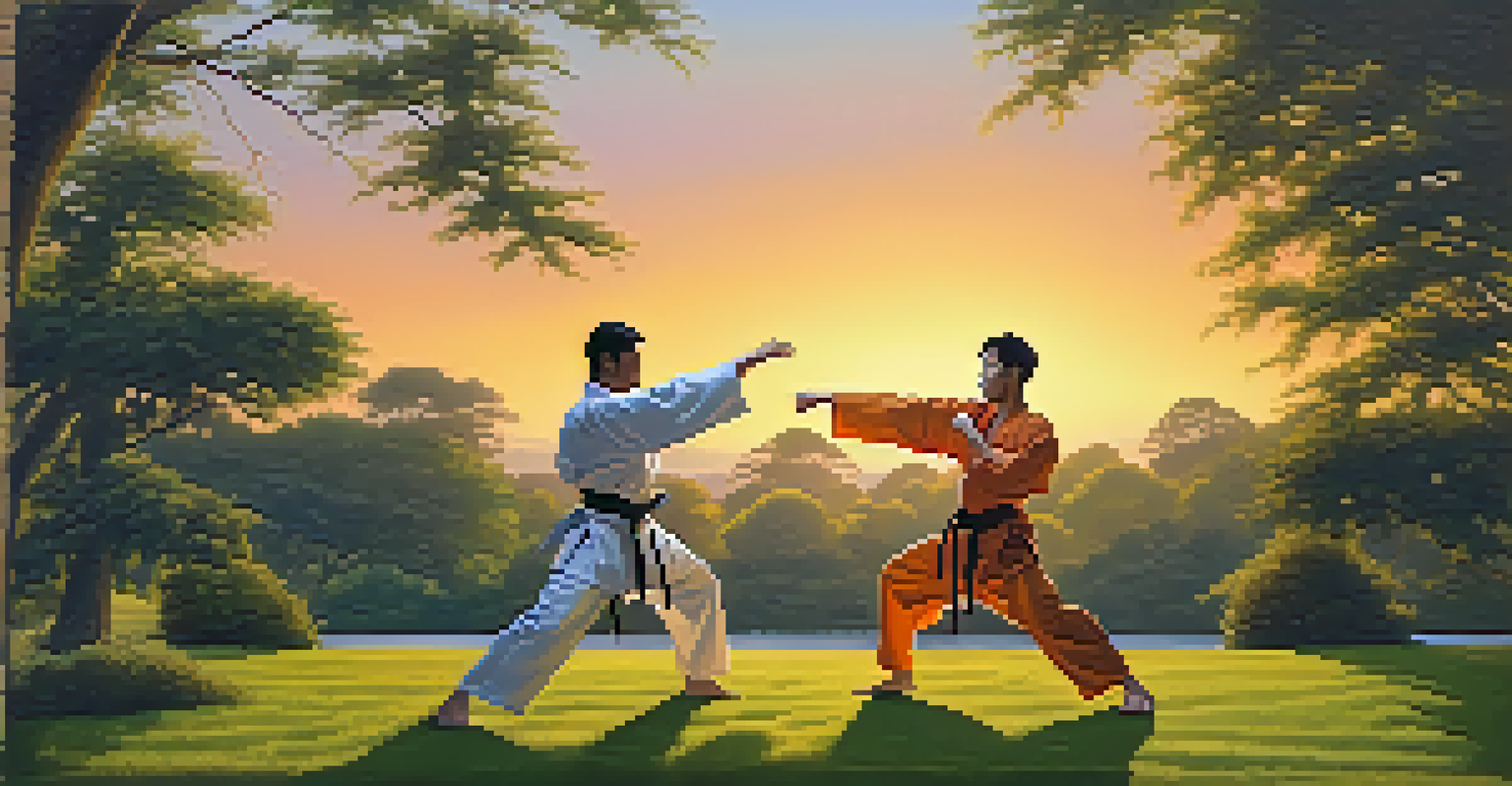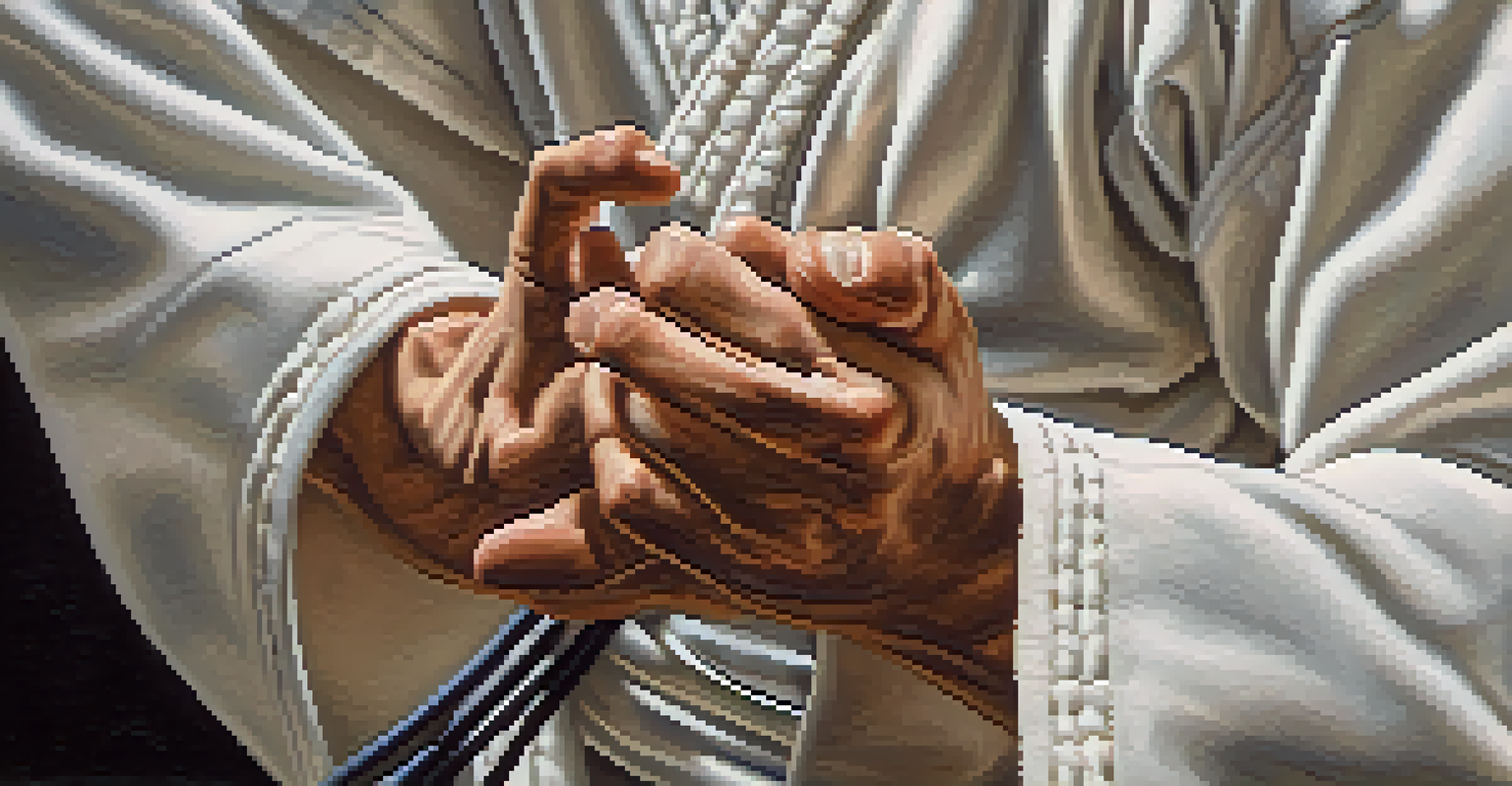Martial Arts Philosophy: A Guide to Conflict Resolution Skills

Understanding the Core Principles of Martial Arts Philosophy
At its heart, martial arts philosophy teaches respect, discipline, and self-awareness. These core principles guide practitioners not only in combat but also in daily interactions. By fostering a mindset of respect, we learn to value others' perspectives, paving the way for peaceful conflict resolution.
The ultimate aim of martial arts is not having to use them.
Discipline in martial arts encourages individuals to think before reacting, allowing for more thoughtful responses during disagreements. It's like taking a deep breath before speaking your mind, giving you a moment to choose your words wisely. This practice can dramatically reduce escalations and misunderstandings.
Self-awareness plays a crucial role in understanding our emotional triggers. Just as martial artists learn to read their opponents, we can learn to recognize our own reactions in heated situations. This awareness is a powerful tool for conflict resolution, helping us manage our emotions and respond more effectively.
The Art of Active Listening in Conflict Situations
One of the most essential skills in martial arts is the ability to listen actively. This means fully engaging with what the other person is saying, rather than just waiting for your turn to speak. In conflict resolution, active listening can transform adversarial conversations into constructive dialogues.

When we practice active listening, we show respect for the other person's viewpoint, even if we disagree. This mirrors the martial arts principle of mutual respect and can lead to a more amicable resolution. It's a reminder that understanding doesn't mean agreement; it simply fosters a space for open communication.
Respect and Discipline Matter
Martial arts philosophy emphasizes respect and discipline as essential tools for effective conflict resolution and daily interactions.
Additionally, by reflecting back what we've heard, we can clarify misunderstandings before they escalate. This technique allows both parties to feel heard and valued, which can significantly reduce tension. Just as in martial arts, where the best fighters are those who anticipate their opponent’s moves, effective listeners can navigate conflicts more skillfully.
Finding Common Ground: The Key to Resolution
In martial arts, practitioners often seek a balance between their strengths and their opponent's weaknesses. Similarly, in conflict resolution, finding common ground is pivotal. This involves identifying shared values or goals that can unite rather than divide.
In the middle of difficulty lies opportunity.
For instance, during a disagreement at work, focusing on the shared objective of project success can help shift the conversation from confrontation to collaboration. This approach not only reduces hostility but can also lead to innovative solutions that satisfy all parties. It's about turning 'us vs. them' into 'we'.
By embracing the martial arts philosophy of unity, we can approach conflicts with a mindset geared towards cooperation. This doesn't mean compromising your beliefs; rather, it's about recognizing that we’re all in this together, striving for a peaceful resolution that benefits everyone.
The Role of Empathy in Conflict Resolution
Empathy is a powerful tool in martial arts, where understanding an opponent's perspective can lead to better strategy. In conflict resolution, empathy allows us to step into someone else's shoes, fostering compassion in heated discussions. It transforms arguments into opportunities for connection.
When we practice empathy, we can better understand the emotions and motivations driving the other person's actions. This deeper understanding can diffuse anger and resentment, akin to how a martial artist might disarm an opponent without resorting to force. It’s about finding strength in understanding rather than aggression.
Empathy Enhances Understanding
Practicing empathy allows us to connect with others' perspectives, transforming conflicts into opportunities for deeper dialogue and resolution.
Moreover, empathy encourages open dialogue and can lead to more meaningful resolutions. By acknowledging the feelings and experiences of others, we create an environment where everyone feels valued and heard. This approach aligns with the martial arts principle of harmony, essential for resolving conflicts peacefully.
Embracing Nonviolence: A Martial Arts Approach
Nonviolence is a fundamental tenet in martial arts that extends beyond physical techniques. It emphasizes the importance of resolving conflicts through peaceful means, stressing that true strength lies in restraint. This philosophy can be incredibly effective in everyday life, encouraging us to choose dialogue over discord.
When faced with conflict, adopting a nonviolent approach allows us to remain calm and composed. Just as martial artists train to control their bodies, we can train our minds to respond rather than react impulsively. This conscious decision can lead to more constructive conversations and outcomes.
Furthermore, embracing nonviolence fosters a culture of respect and understanding. By prioritizing peaceful solutions, we not only address the immediate conflict but also set an example for others. This ripple effect can change the way communities engage with one another, promoting harmony in a broader context.
Practicing Mindfulness to Enhance Conflict Resolution Skills
Mindfulness, a practice rooted in martial arts, involves being fully present in the moment. This awareness can significantly enhance our ability to navigate conflicts by helping us manage our emotions. Just as martial artists focus on their breath to center themselves, we can use mindfulness to stay calm during challenging interactions.
By practicing mindfulness, we become more attuned to our thoughts and feelings, which can help us respond more thoughtfully. Instead of reacting impulsively in a conflict, we can take a moment to pause, reflect, and choose a course of action aligned with our values. This intentionality can lead to more positive outcomes.
Mindfulness Promotes Calm Responses
Incorporating mindfulness helps us stay present and manage our emotions, leading to more thoughtful and constructive responses during conflicts.
Moreover, mindfulness encourages us to approach conflicts with curiosity rather than defensiveness. This shift in perspective allows us to explore the underlying issues that may be contributing to the disagreement. In doing so, we cultivate a space for understanding and resolution, much like the balance sought in martial arts.
Applying Martial Arts Philosophy in Everyday Life
Incorporating martial arts philosophy into our daily lives can greatly enhance our conflict resolution skills. Whether at work, home, or in social situations, these principles can guide us toward more effective communication and understanding. It's about bringing the dojo mindset into the real world.
For example, when faced with a disagreement with a colleague, applying the principles of empathy and active listening can transform the conversation. Instead of escalating tension, these techniques can lead to collaborative problem-solving, turning potential conflicts into opportunities for growth and connection.

Ultimately, the goal is to cultivate a mindset that values respect, understanding, and nonviolence. By adopting these martial arts philosophies, we can navigate conflicts more gracefully, fostering healthier relationships and a more peaceful environment. Just as martial artists train for excellence, we too can refine our conflict resolution skills through practice.